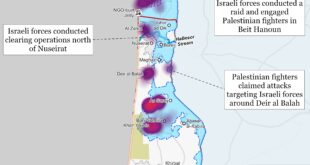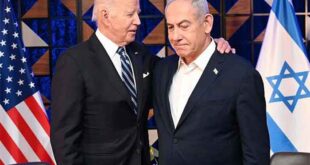 TEHRAN (FNA)- Iran’s former president Akbar Hashemi Rafsanjani called on the international community to take up a fair approach towards Iran’s nuclear issue and create a more conducive climate for Iran to give reassurances on its nuclear program.
TEHRAN (FNA)- Iran’s former president Akbar Hashemi Rafsanjani called on the international community to take up a fair approach towards Iran’s nuclear issue and create a more conducive climate for Iran to give reassurances on its nuclear program.
During a meeting with Austrian ambassador Michael Postle, Rafsanjani said, “If a friendly and rational atmosphere is established, Iran is ready to take the necessary action to secure the world’s confidence.”
Rafsanjani, who is also the Expediency Council chairman, insisted that “mutual respect” between Iran and its Western critics was essential to resolving the nuclear standoff.
Brushing aside Western accusations surrounding Iran’s atomic work, Rafsanjani stressed the peaceful nature of the Islamic Republic’s nuclear program.
“Our religious beliefs have never allowed us to use an atomic bomb and they will never,” he was quoted as saying by the website of the Islamic Republic of Iran’s Broadcasting (IRIB).
He said that Iran was ready to cooperate and continue talks with the European Union (EU) under the condition of mutual respect.
Rafsanjani said any precondition for talks is irrational.
Reminding that Iran opposes any kind of hegemony, he reiterated that imposing such policies by westerners had caused a loss to them.
Rafsanjani, who is also the chairman of Iran’s Experts Assembly, further, further pointed out, “Iran has never used its oil and gas as a political lever and has always been committed to its obligations for supplying energy to the world and if the West imposes limitations on Iran’s oil and gas industry, they will inflict losses on themselves first.”
He stressed Iran’s interest is in maintaining regional security by the countries of the region, and reminded that insecurity in Iraq and Afghanistan would hurt Iran too.
“NATO in Afghanistan and Coalition Forces in Iraq have not been able to provide security and they accuse Iran in a bid to cover up their weakness,” Rafsanjani underlined.
For his part, the Austrian ambassador called negotiations the only way to build confidence and solve problems between Europe and Iran.
The envoy further reiterated Tehran’s right to access civilian nuclear technology, saying, “Based on international law, Iran has the full right to use nuclear energy peacefully.”
Referring to the effective role of Iran in the region, the ambassador said, “Solving Iraq and Afghanistan problems requires Iran’s assistance.”
He also said expansion of economic cooperation between Iran and the EU is beneficial to both sides and could help solve some problems.
Rafsanjani’s comments came after Tehran said on Monday that it had no intention to give ground on the issue of uranium enrichment even as a confidence-building measure.
World powers agreed Friday to try again to persuade Iran to give up its NPT right of uranium enrichment in exchange for a repackaged set of incitements first offered to Tehran in 2006.
Diplomats said the offer contained no major new enticements but was meant to remind Iran that talking is an option.
Iran has so far ruled out halting or limiting its nuclear work in exchange for trade and other incentives, and says it will only negotiate with the UN nuclear watchdog.
Iran has repeatedly said that it considers its nuclear case closed after it answered the UN agency’s questions about the history of its nuclear program.
Iran’s Supreme Leader Seyed Ayatollah Ali Khamenei reiterated on Sunday that the country would push ahead with its nuclear program despite pressure from the West.
Iran is under three rounds of UN Security Council sanctions for turning down West’s illegitimate calls to give up its right of uranium enrichment, saying the demand is politically tainted and illogical.
The United States and its Western allies have accused Iran of trying to develop nuclear weapons under the cover of a civilian nuclear program, while they have never presented any corroborative document to substantiate their allegations. Iran has denied the charges and insisted that its nuclear program is for peaceful purposes only.
Tehran stresses that the country has always pursued a civilian path to provide power to the growing number of Iranian population, whose fossil fuel would eventually run dry.
The US is at loggerheads with Iran over the independent and home-grown nature of Tehran’s nuclear technology, which gives the Islamic Republic the potential to turn into a world power and a role model for other third-world countries. Washington has laid much pressure on Iran to make it give up the most sensitive and advanced part of the technology, which is uranium enrichment, a process used for producing nuclear fuel for power plants.
Washington’s push for additional UN penalties contradicted the recent report by 16 US intelligence bodies that endorsed the civilian nature of Iran’s programs. Following the US National Intelligence Estimate (NIE) and similar reports by the IAEA head – one in November and the other one in February – which praised Iran’s truthfulness about key aspects of its past nuclear activities and announced settlement of outstanding issues with Tehran, any effort to impose further sanctions on Iran seemed to be completely irrational.
The February report by the UN nuclear watchdog, the International Atomic Energy Agency, praised Iran’s cooperation in clearing up all of the past questions over its nuclear program, vindicating Iran’s nuclear program and leaving no justification for any new UN sanctions.
Tehran says it wants to enrich uranium merely for civilian purposes, including generation of electricity, a claim substantiated by the NIE and IAEA reports.
Iran has also insisted that it would continue enriching uranium because it needs to provide fuel to a 300-megawatt light-water reactor it is building in the southwestern town of Darkhoveyn as well as its first nuclear power plant in the southern port city of Bushehr.
Not only many Iranian officials, including President Mahmoud Ahmadinejad, but also many other world nations have called the UN Security Council pressure unjustified, especially in the wake of recent IAEA reports saying Iran had increased cooperation with the agency.
US President George W. Bush finished a tour of the Middle East in winter to gain the consensus of his Arab allies to unite against Iran.
But hosting officials of the regional nations dismissed Bush’s allegations, describing Tehran as a good friend of their countries.
Bush’s attempt to rally international pressure against Iran has lost steam due to the growing international vigilance, specially following the latest IAEA and US intelligence reports.
 Eurasia Press & News
Eurasia Press & News



